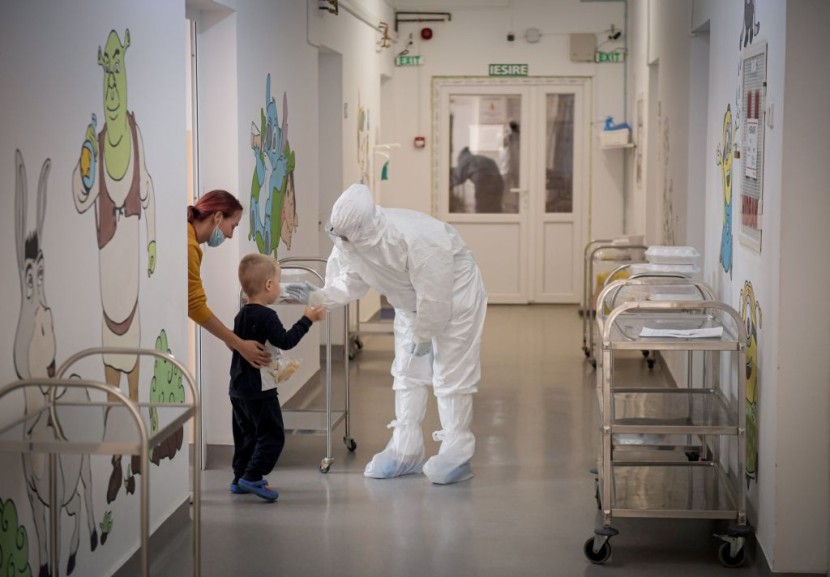
A New Hampshire kid is battling a rare disease linked to COVID-19 in a Boston hospital. Last month, Christine Raymond's 8-year-old son, Luke, was diagnosed with COVID-19. He just had minor symptoms and healed so she assumed he was well.
Luke, developed stomach pain a few weeks later. His symptoms included fever, vomiting, diarrhea, and a full-body rash. At one point, he became unconscious and had to be taken to the hospital.
Boy, 8, had rare syndrome due to COVID-19
His mother stated that she spoke with several physicians but that none of them could tell out what was wrong and that his test results were normal. She persisted in her quest for answers, and Luke was finally admitted to Massachusetts General Hospital, where physicians diagnosed him with MIS-C, or multisystem inflammatory syndrome in children. It's a rare but serious condition that has been linked to COVID-19 in which parts of the body become inflamed.
Luke's mother claimed the inflammation has subsided, but he isn't expected to be released any time soon. Her advice to other parents is to fight for their children's rights and to be aware of the signs and symptoms of MIS-C, as per WMUR Manchester via MSN.
The mother described the terrible moment when her son developed heart failure as a result of a 'mild' case of COVID-19. Anita Phillips of Michigan stated her 12-year-old son Jon began to show signs of Multisystem Inflammatory Syndrome (MIS-C) four weeks after obtaining a positive test result, according to Yahoo News.
Read Also: US Surgeons Successful In First Genetically Modified Heart Transplant From Pig to Human Patient
COVID-19's many complications on children
While the verdict is yet out on the Omicron-led wave that is impacting youngsters, particularly those under the age of 5, the lethal disease's effects persist even after recovery, which can have severe consequences among children. According to a new report published by the CDC, COVID-19 has caused a surge in diabetes cases in children while it is unclear if the metabolic state in these children is transitory or persistent.
Cases of MIS-C in children surged last year, just after the second wave of issues affecting the heart, lungs, arteries, brain, digestive system, and eyes decreased. Long COVID affected children as well, and some of them had chronic difficulties despite the fact that they were asymptomatic at the time of infection.
Per Hindustan Times, Dr. Charu Dutt Arora, Consultant Physician and Infectious Disease Specialist Head, Asian Hospital, Faridabad, addresses the health difficulties that children may suffer following the COVID-19 procedure:
1. Diabetes: A research found that children have 2.6 times the amount of diabetes cases as adults. These alterations in children are caused by metabolic and social factors. Some of the key reasons include the virus targeting pancreas cells directly, greater stress levels leading to insulin resistance, and a sedentary lifestyle during the pandemic. However, it is still unclear if the diabetes alterations are transitory or permanent.
2. MIS-C: Multisystem inflammatory syndrome (MISC-S) in children is an uncommon but devastating post-COVID consequence. MISC is a syndrome that affects a variety of organs, including the heart, lungs, arteries, brain, digestive system, and eyes.
3. Long COVID: COVID-19 can cause persistent problems in children who are asymptomatic or moderately ill. Long-haul trucks might have a variety of problems.
4. Mental health issues: Children and teenagers, like everyone else, are suffering from the effects of the COVID-19 epidemic. There is a heightened prevalence of anxiety, sadness, social isolation, uncertainty, and mental problems among children after COVID, according to several research conducted in various regions of the world. Pandemic fatigue and high levels of stress are two important contributing causes.
5. Developmental issues: Subtle changes in neurocognition, speech, attention, mobility, and mood may occur in many children. In rare cases, children's brains might expand, resulting in encephalitis.
Many studies have indicated that COVID-19 has wreaked havoc on children's mental health, with an increase in instances of anxiety, sorrow, and mood problems in children following infection, in addition to developmental impairments including neurocognition, speech, attention, and mobility.
Related Article : New COVID-19 Variant 'Deltacron': Is It A Lab Error or Real Threat?
@YouTube
© 2026 HNGN, All rights reserved. Do not reproduce without permission.







